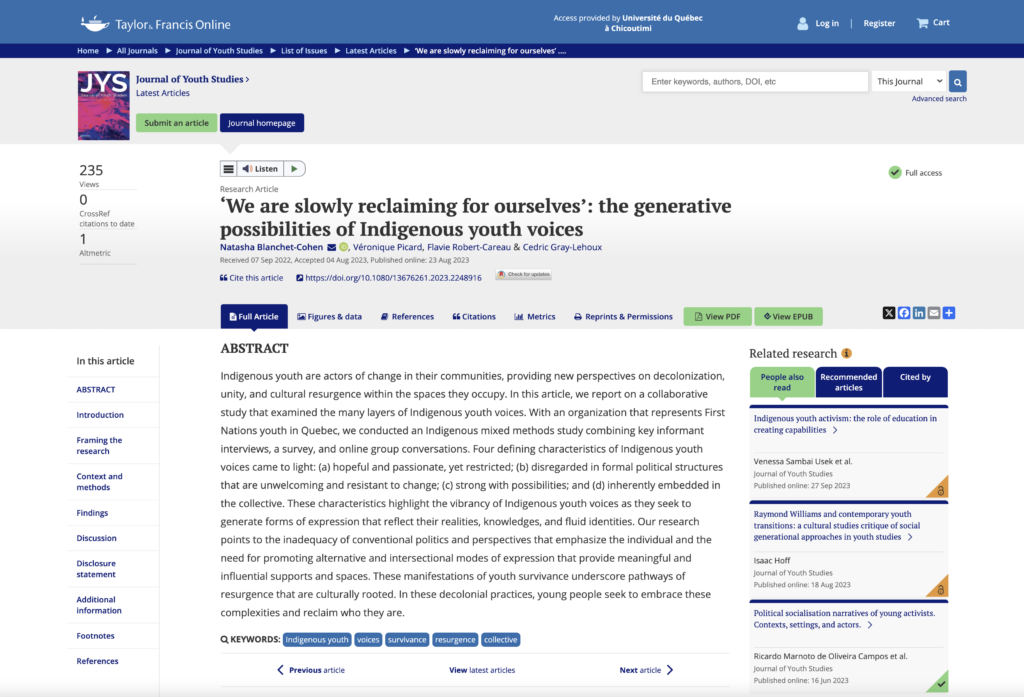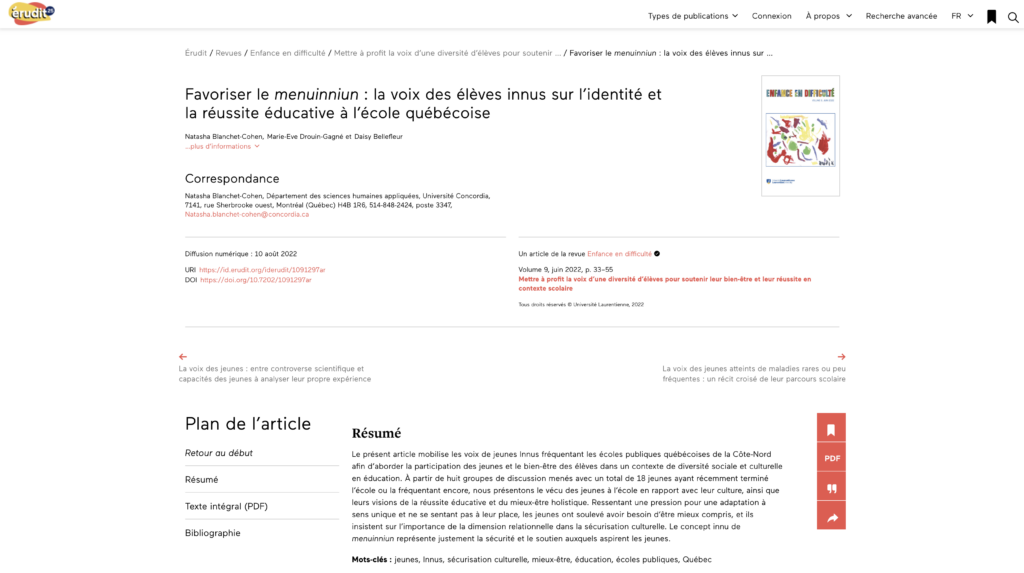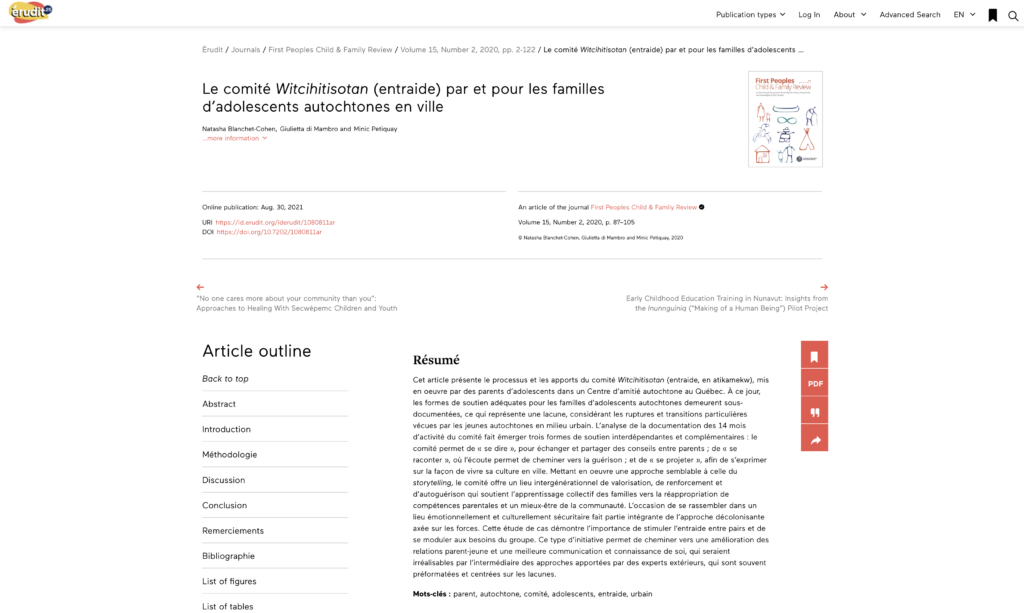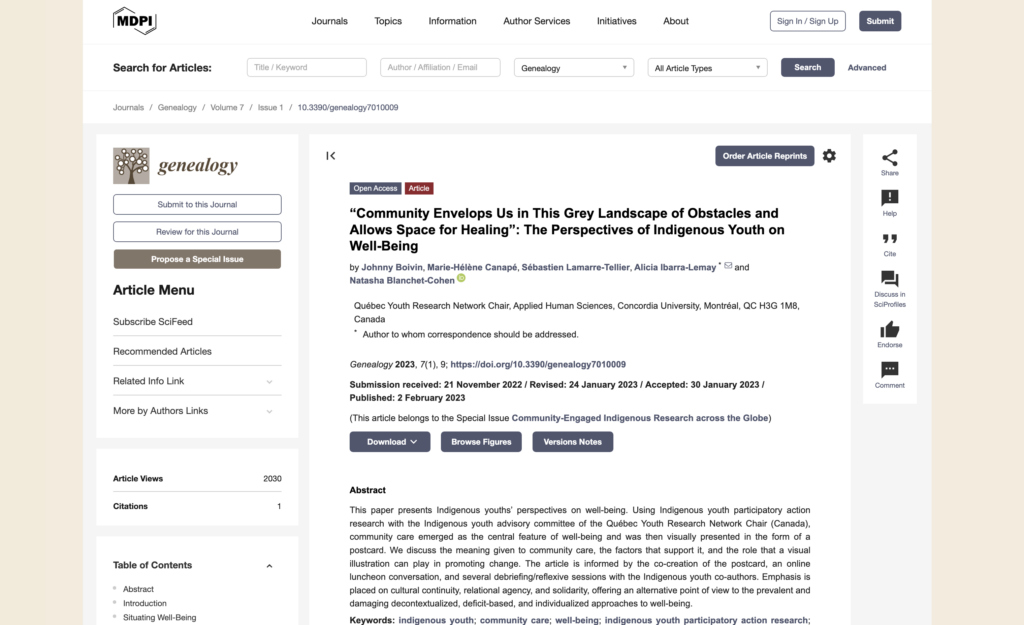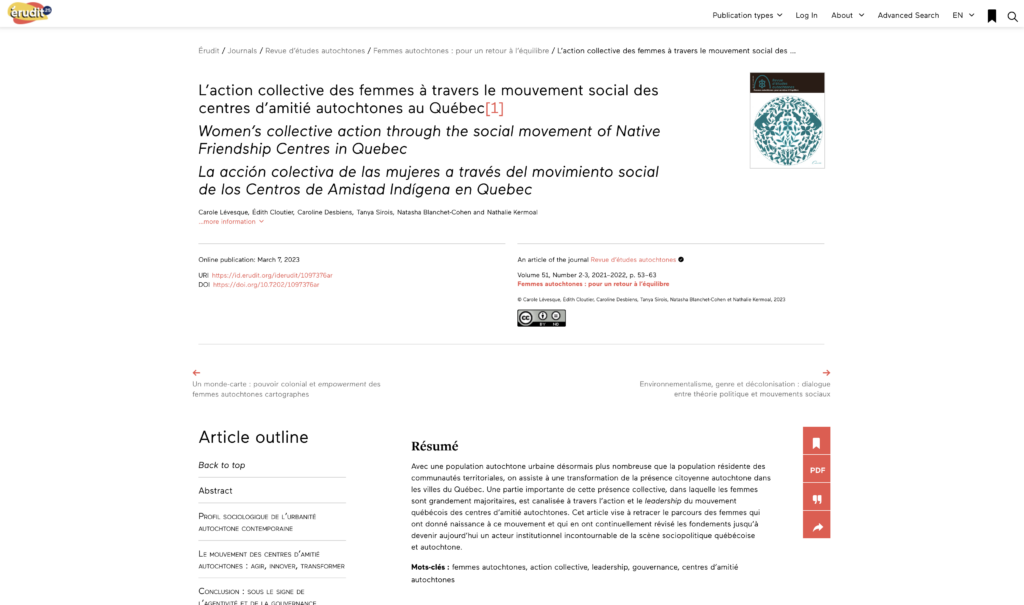Notice bibliographique
Roberge, J. B., Van Hulst A., Barnett, T. A., Drapeau, V., Benedetti, A., Tremblay, A. et Henderson, M. (2019). Lifestyle habits, dietary factors and the metabolically unhealthy obese phenotype in youth. J Pediatr, 204, 46-52.
Résumé
Objective
To determine whether lifestyle habits and dietary factors at age 8-10 years predict the development of metabolically unhealthy obesity 2 years later among children who were previously metabolically healthy obese.
Study design
The QUebec Adipose and Lifestyle InvesTigation in Youth cohort comprises 630 youth with a parental history of obesity. Metabolically healthy obesity and metabolically unhealthy obesity were defined using cut-offs for the components of pediatric metabolic syndrome. Dietary factors, physical activity, fitness, sedentary behavior, screen time, and sleep duration were measured. Multivariable logistic regressions were used to examine associations.
Results
At baseline, 48 participants with metabolically healthy obesity were identified; 2 years later, 19 became metabolically unhealthy obese and 29 remained metabolically healthy obese. Every additional daily portion of fruits and vegetables decreased the risk of converting to metabolically unhealthy obesity by 39% (OR 0.61, 95% CI 0.40-0.94). Cumulating more hours of screen time and diets high in saturated fat and sugar-sweetened beverages and low in protein were associated with a tendency to develop metabolically unhealthy obesity.
Conclusions
Fruit and vegetable intake and possibly screen time, saturated fat, sugar-sweetened beverages, and protein intake may be important targets for the prevention of cardiometabolic complications in obese children.
Hyperlien
https://doi.org/10.1016/j.jpeds.2018.08.063Publication du membre
Tracie BarnettAppartenance aux volets














